EFACIS members have access to the most recent ISE publications. Please contact the EFACIS coordinator (efaciscoord@efacis.eu) for more information.
All volumes of the EFACIS book series are fully open access two years after publication.
EFACIS members have access to the most recent ISE publications. Please contact the EFACIS coordinator (efaciscoord@efacis.eu) for more information.
All volumes of the EFACIS book series are fully open access two years after publication.
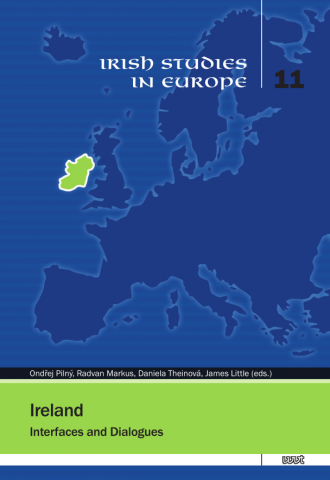
Ondřej Pilný, Radvan Markus, Daniela Theinová, James Little (eds.) 2022
Ranging across the fields of history, literary studies, music studies, theatre and performance studies, film studies, media studies, and the study of material culture, this volume provides a snapshot of some of the most exciting emerging European research on Ireland. The essays gathered here approach Ireland as an interface, a locus that allows intercultural exchange, examining contact zones with other cultures as sites of productive and mutually enriching dialogue. Featuring three sections – Transnational and Intercultural Interactions, Dialogues with the Past, and Hauntings and Traumas – the collection aims at a discussion and further development of interdisciplinary dialogues in Irish studies, treating the frontiers of disciplines, research areas, and methodologies as interfaces that are changing how we understand Ireland past, present, and future. This dimension of the book is enhanced by two extensive interviews with renowned Irish documentary film-makers (Alan Gilsenan, Gillian Marsh, and Pat Collins) and leading performance practitioners and activists (Lian Bell and Maeve Stone).
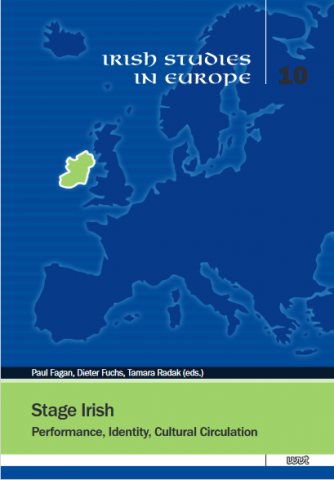
Fagan, Paul. Fuchs, Dieter. Radak, Tamara (eds). 2021
Stage Irish: Performance, Identity, Cultural Circulaton brings together chapters which revisit and reconsider diverse modes of (mis)representing, performing, articulating, witnessing, constructing, and deconstructing ‘Irishness’ from a twenty-first-century vantage. The time is ripe for such a inquiry. The Celtic Tiger and Brexit, the Marriage Equality referendum and the #Repealthe8th and #WakingTheFeminists campaigns compel us to turn to history and representation (in literature, drama, art, music, film, television, non-fiction, popular, and digital culture) to reassess how ‘Irishness’ has been shaped and reshaped through parochial, national, and international performances and gazes as a variously class-coded, gendered, sexual, religious, national, and artistic identity. This focus on the cultural, societal, historical, and political interfaces between performance, performativity, spectatorship, and identity in diverse Irish and international contexts reveals tensions between self-image and Othering, innovation and cliché, cultural production and negotiated reception.
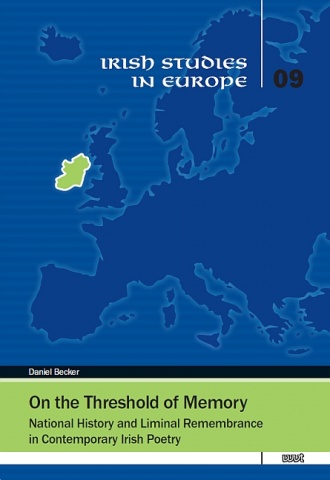
Becker, Daniel. (2021)
Whether in the form of idealised ancient times or the representation of more recent political events, Irish national history often obtained a central position in the work of many Irish poets throughout the twentieth century. In more recent years, however, these strong ties between poetry and history appear to have been severed: As current research suggests, many contemporary Irish poets, who started publishing their works around the year 2000, have turned their poetic focus away from national concerns and, thus, have exchanged the topic of Irish national history for a more 'post-national' present-day perspective. Yet, this impression is misleading, as the present book will show. By analysing selected poems by Iggy McGovern, Tom French, Vona Groarke, Martina Evans, Leanne O’Sullivan, Paul Perry, Lorna Shaughnessy, Paula Cunningham, as well as the more intensively researched writers Paula Meehan and Paul Durcan, this study will argue that Irish history still finds its proper place in the work of contemporary Irish poets. More specifically, this book will focus on one of the most dominant ways of remembering Ireland's past in recent poetry: the negotiation of history via liminal remembrance, which refers to the observation that many contemporary Irish poems represent aspects of Irish history in between being remembered and being forgotten at the same time.
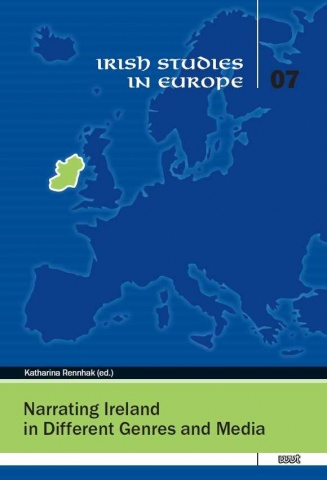
Rennhak, Katharina (ed.)
In an article in The Guardian, entitled “This much I Know” (2009), Sebastian Barry emphasises the social importance of the storyteller: 'Not everyone is a storyteller, but every group of people needs one. It’s an ancient, campfire thing. Storytellers are necessary in the dark, around the fire – someone needs to take responsibility to drive away the terrors of darkness. Or sometimes to help explain the darkness, and even help you embrace it; realise that it’s not all black, that there’s always a seam of beauty.' (Ferguson) This statement, which daringly reassembles a number of stereotypes about storytelling, no longer casts twenty-first-century authors as poets who “are the unacknowledged legislators of the World” (Shelley 535). Neither does it envision the author, as W. B. Yeats did, as predominantly a dramatist who writes for a “theatre where the capricious spirit that bloweth where it listeth has for a moment found a dwelling-place [and has, as a consequence,] good right to call itself a National Theatre” (414). In the twenty-first century the author whom “every group of people needs” is first and fore- most a storyteller. Percy Bysshe Shelley would, of course, have considered his Prometheus Unbound and (some) other dramatic texts as poetry, just as well as Yeats is, more generally, interested in “Literature [...], the ultimate creator of values” which can manifest itself in “every movement of imagination in song or story or drama” (414). Drawing on the terminology of Wellek and Warren, one could say that Shelley, Yeats and Barry emphasise one “generic mode” – the lyrical, the dramatic and the epic – which dominates their respective (literary) cultures. Significantly, these “generic modes” are neither dependent on nor necessarily correlative to “the generic forms” or “these ‘ultimates’ – poetry, fiction and drama” (229). Narrating Ireland in Different Genres and Media sets out to trace the narrative dominant through twentieth-century and twenty-first-century fiction, poetry, drama, film, TV and the World Wide Web.
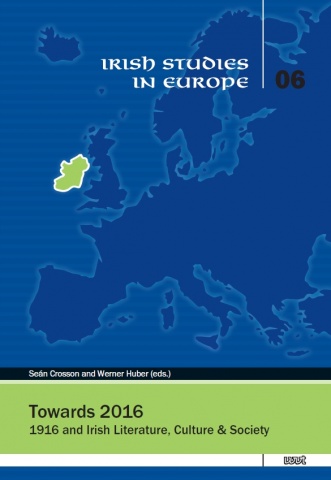
Crosson, Seán; Huber, Werner (eds.)
Towards 2016: 1916 in Irish Literature, Culture & Society is cognisant of the multiple perspectives and events that are associated with 1916 in Ireland and their continuing relevance to Irish literature, culture and society. The collection considers a broad range of cultural forms and societal issues, including politics, theatre, traditional music, poetry, James Joyce, greyhound sports, graphic novels, contemporary fiction, documentary, language, political representation, and the Irish economy with contributions from both emerging academics and established scholars. Also featured is an interview with acclaimed film director and novelist Neil Jordan (conducted by novelist Patrick McCabe) on his life and work, including his biopic Michael Collins (1996), a work which includes one of the most memorable renderings of the Rising and its aftermath. Among the questions considered in the collection are: What were the formative influences on one of leaders of the Rising, James Connolly? What effect had the Rising on Ireland’s fledgling labour movement? What impact did the Rising have on the Abbey and Irish theatre? What connects 1916, James Joyce, and the Cuban Revolution? What is the relevance of 1916 to Irish traditional music? What place has 1916 in contemporary Irish fiction and poetry? What are the relations between the Rising, sequential art, popular culture, and memory? A century after the 1916 Proclamation spoke of equality between women and men, could Ireland be finally about to realise equal gender distribution in politics? Does ‘Irish sovereignty’, a central concern of the Rising leaders, have any relevance for Ireland in the contemporary globalised and European Union context?
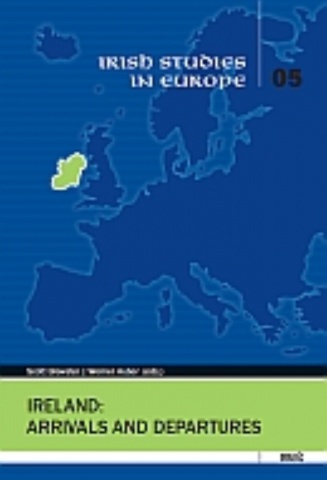
Scott Brewster; Werner Huber (eds.)
A decade ago, with its economy and cultural confidence surging and with new political alignments possible in the North, Ireland seemed to have ‘arrived’ on the world stage by conventional measures of success. Yet the recent financial storms and accompanying social pressures are a reminder of the challenges as well as the opportunities of leaving behind old certainties and becoming ‘global.’ It has equally meant reappraising values, attitudes and practices seemingly consigned to the past and to questioning the verities that have driven the heady but uneven transformation of modern Ireland. This volume explores the Irish experience, both within the contemporary period and over a much longer historical span, as a process of navigating between ‘here’ and ‘elsewhere,’ of discovery and unpredictable encounter, of temporal and spatial dislocation as well as complex connectedness.
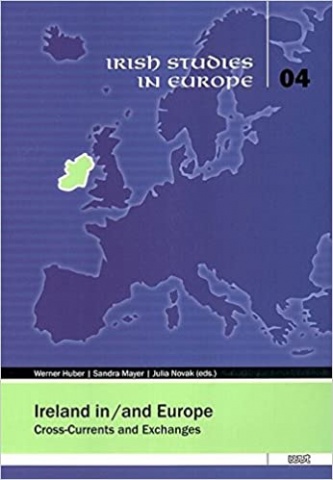
Huber, Werner; Mayer, Sandra; Novak, Julia (eds.)
“Hibernicise Europe and Europeanise Ireland” 1 – this apocryphal quotation from James Joyce seemed a good motto for an EFACIS (European Federation of Associations and Centres of Irish Studies) conference precipitating a volume of essays on Irish-European cross-currents and exchanges. Vienna as the venue for that conference (University of Vienna, 3-6 September 2009) and the editors’ home base also evinced its potential as a place of exchange and negotiation. Ever since the fall of the Iron Curtain, Austria in general and Vienna in particular have been branded and promoted as the hub, cross-roads, and marketplace of a redefined Central Europe.
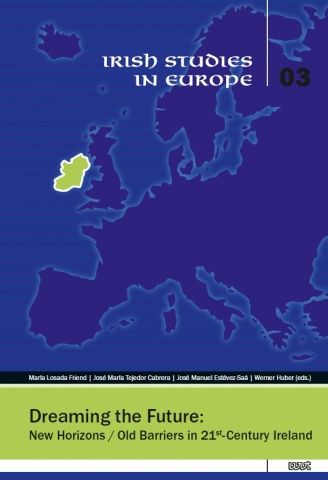
Losada Friend, María; Tejedor Cabrera, José María; Estévez-Saá, José; Huber, Werner (eds.)
In this conference’s spirit of creating a Europe-wide forum for diverse and innovative explorations of classic and contemporary issues within Ireland’s social, cultural, political, and economic realms, this third volume in the Irish Studies in Europe series includes articles and poems that ambitiously reveal the complex academic and artistic challenges of contemporary Irish Studies. The title of Dreaming the Future: New Horizons/Old Barriers in 21st-Century Ireland, shared by both the conference and this volume, alludes to Walter Benjamin’s assertion that “every epoch not only dreams the next but, while dreaming, it impels it toward wakefulness.” Already the Irish panorama looks quite different than it did at the turn of the last century – a point ably demonstrated throughout this collection – as “New Horizons” continue to reveal themselves even as many “Old Barriers” stubbornly refuse erasure. As such, it is the challenge of Irish Studies in Europe to trace carefully and elucidate the many and great changes witnessed by both Northern Ireland and the Republic today, as traditional images of underdevelopment, isolationism, sectarianism, and violence are gradually overturned and replaced. This collection meets these challenges through a thoroughgoing and multifaceted recognition and revision of the movements, and figures that, dreaming the future, have led and shaped the island in its non-stop evolution.
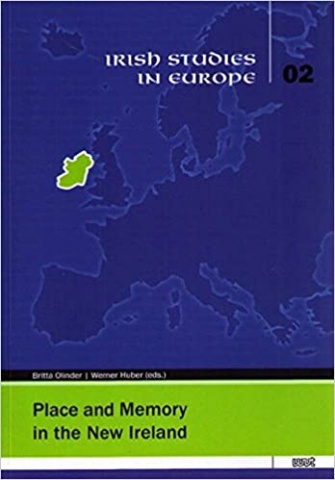
Britta Olinder, Werner Huber (eds.) 2009
'Place and Memory in the New Ireland' was the theme of the Fifth EFACIS conference held in Gothenburg, Sweden, in December of 2005. The topic was related to the ongoing 'Memory Project' of the Nordic Irish Studies Network (NISN), which has since resulted in Recovering Memory: Irish Representations of Past and Present, edited by Hedda Friberg, Irene Gilsenan Nordin, and Lene Yding Pedersen (Newcastle: Cambridge Scholars Publishing, 2007). One of the five sections therein explicity deals with "Memory and Place," a nexus that seems quite natural, since these two concepts have to do with belonging and rootedness, both geographically and historically, representing two different dimensions. The question is what they mean today, in the new prosperous conditions of Ireland.